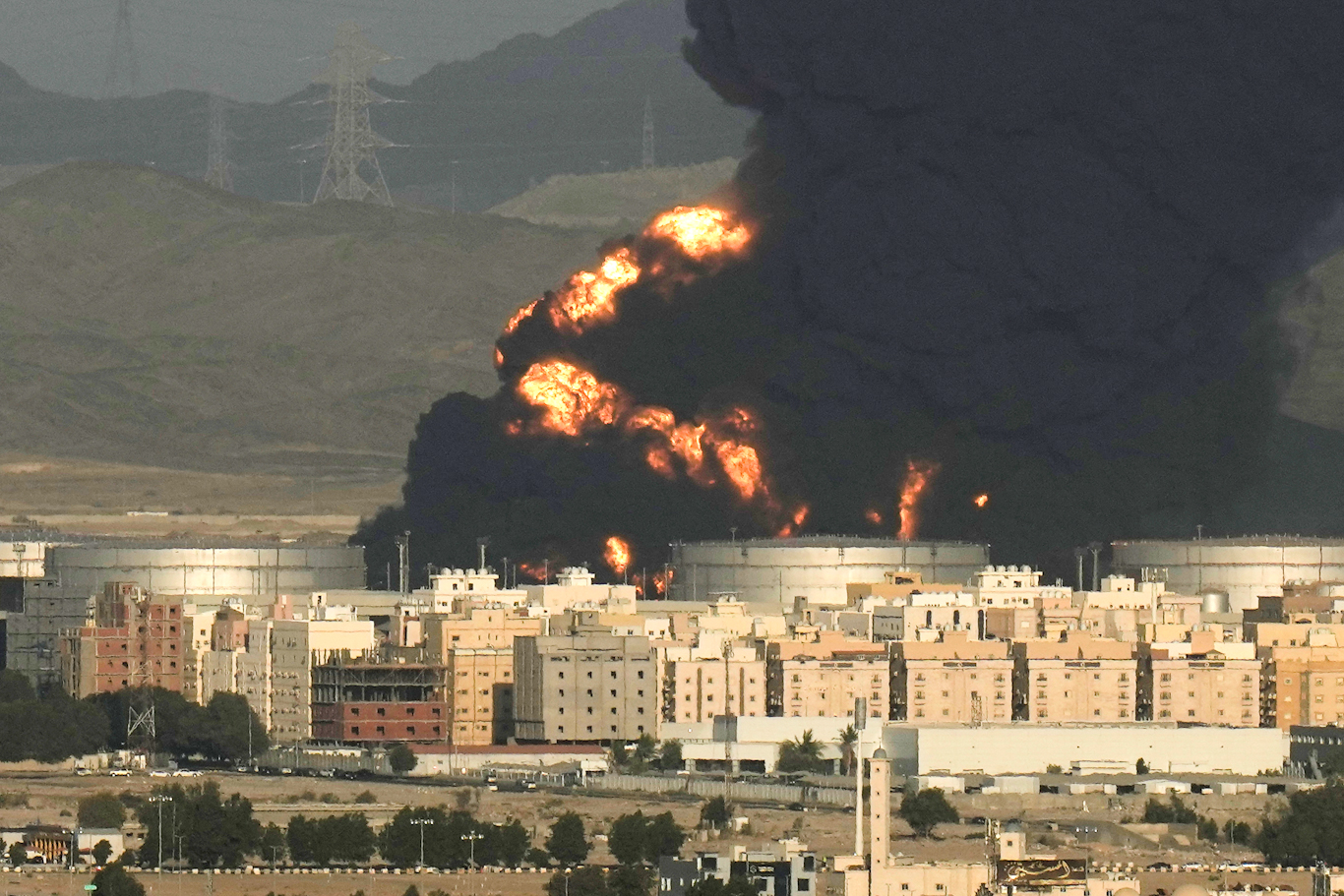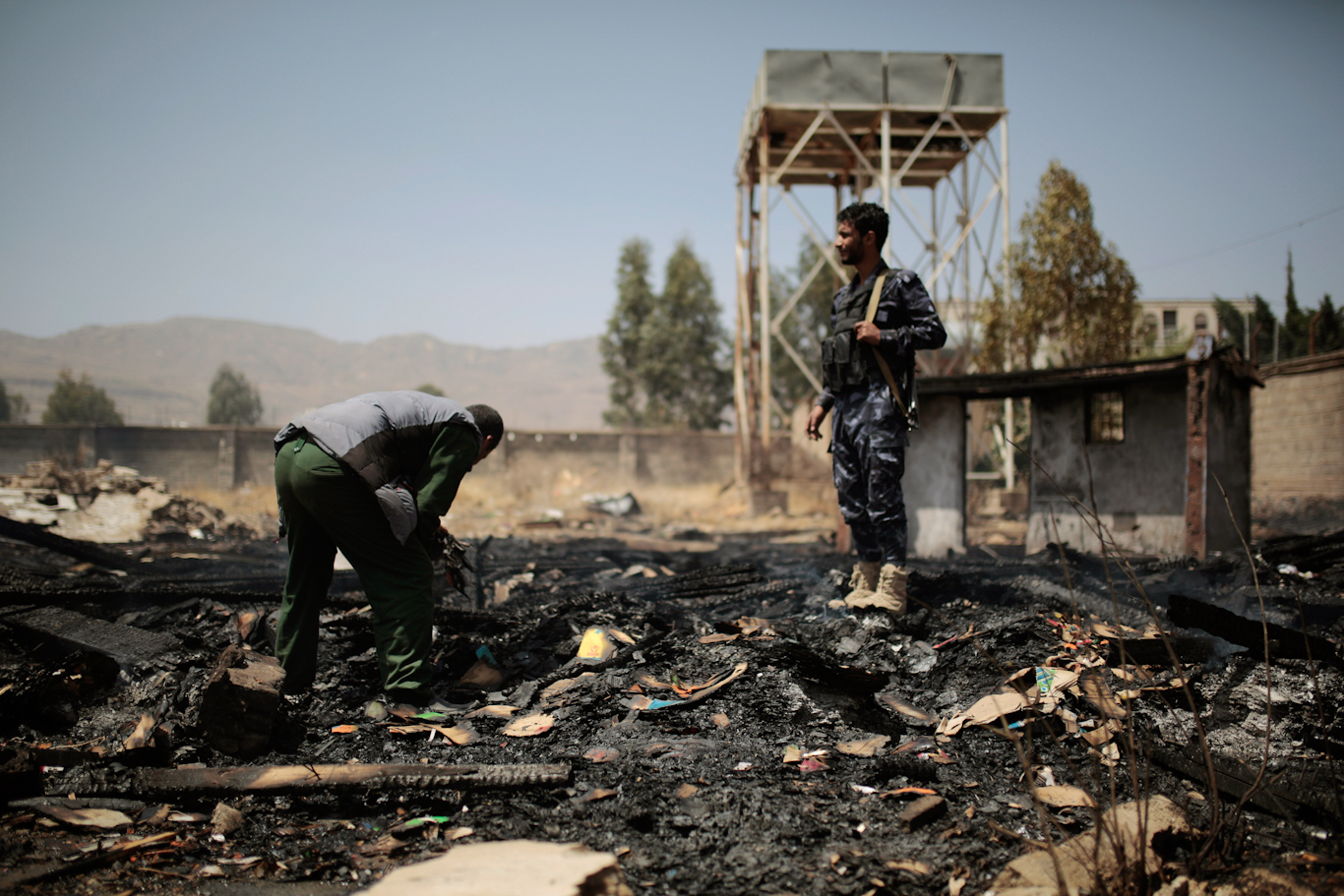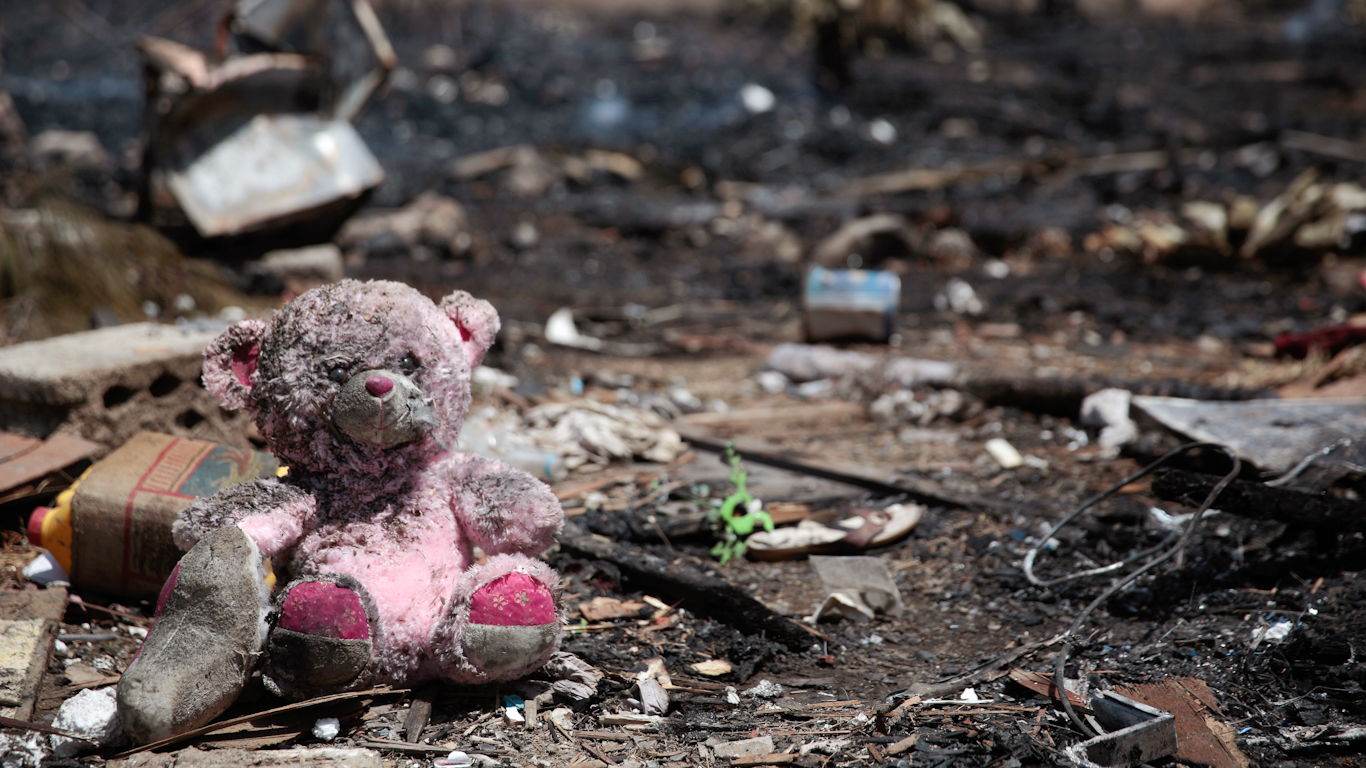SANA’A, YEMEN -– Seven years have passed since the brutal war against Yemen, a ship-shaped country located on the southern Arabian Peninsula, began in March 2015. The war has been acknowledged as one the bloodiest in modern history and called the “world’s worst humanitarian disaster” by human rights groups. Yet, rather than breaking Yemeni resolve, the Saudi-led war backed by the collective military might of the world’s most powerful nations has only strengthened the poorest country in the Middle East; and Ansar Allah, its underdog combatant, is now stronger and more united than it has ever been.
On the seventh anniversary of the war, MintPress News spoke with survivors, relatives of victims, and refugees of the conflict, who recount their stories and explore the current state of the conflict as evidence suggests that the Saudi-led Coalition’s grip on Yemen may be loosening.
”I remember when a huge explosion rocked my home, then I went up on the roof. There were fires like a volcano.” Mourad Yahya told MintPress, referring to Saudi airstrikes that killed an entire family in Bani Hawat shortly after Saudi Arabia announced operation “Decisive Storm.” Yahya, a father in his sixties who was displaced from his home, now lives in a makeshift refugee camp in the Dhahban Center for the Displaced in northern Sana’a. Despite the short supply and high prices of goods, which have been aggravated by the war in Ukraine, Yahya says he has become more determined to persevere. “Today, I see the same fires not here but in Saudi [Arabia]” he said, referring to the images of huge fires that were plastered across international media last week after Ansar Allah struck a Saudi state-run oil facility in Jeddah.

Displaced children in the Dhahban Center for Displaced in Sana’a, March 27, 2022. Taha Shurgbi | MintPress News
Hitting Saudi oil, power and water
The attack, which came amid international concerns about the future of energy in light of the Russian-Ukrainian war, was intended to send a message to Riyadh and its allies alike, particularly to the Biden administration, that Yemenis are not only still steadfast and stronger than before, but are resolved to break the stifling blockade on their country that has been imposed by the Saudi-led Coalition since 2015.
It is part of a renewed effort by Ansar Allah’s air force to impose a costly penalty on Gulf nations and their backers for their war on Yemen, which has sparked massive fuel shortages, water shortages, and famine on a near-Biblical scale in the world’s poorest nation. Dubbed Operation Breaking the Siege III, the large-scale offensive against high-value facilities inside of Saudi Arabia will likely bear the hallmark of Ansar Allah: ballistic and winged missiles and drone attacks against sensitive targets across the Saudi Kingdom.
Attacks have already struck targets in the Saudi capital Riyadh, and the southern cities of Dhahran al-Janub, Abha, and Khamis Mushait were pounded by dozens of missiles and drones. Energy facilities in the strategic regions of Jizan and Najran and in the Red Sea port city of Jeddah were also struck, along with the oil refineries in Ras Tanura and Rabigh, and a power station in Samtah, according to Ansar Allah officials.

Smoke rises from an oil depot after an attack by Ansar Allah ahead of a Formula One race in Jeddah, Saudi Arabia, March 25, 2022. Hassan Ammar | AP
The offensive represents the fiercest operation by Ansar Allah against Saudi Arabia to date. It dwarfs the September 2019 attacks against Saudi Arabia’s oil facilities in Abqaiq and Khurais, which led to a suspension of about 50% of the Arab kingdom’s crude and gas production.
It took over 50 firefighting teams more than 24 hours to extinguish the massive blaze from last week’s attack on the Saudi oil facilities in Jeddah. Even then, massive plumes of smoke covered the coastal city, causing an unprecedented state of panic. Saudi state-owned media broadcasted every aspect of the attack live in an attempt to either gain international sympathy or alarm the international community. In the wake of the attacks, crude oil prices surged and broke $120 per barrel.
In a first, Ansar Allah Yemen also targeted a Saudi water desalination plant in Jizan and a power station in Samdah in an effort to force Riyadh and its allies, particularly Washington, to lift their deadly blockade on more than 25 million Yemenis – a siege that has made life in the war-torn country deadly for millions of civilians unable to secure electricity, clean water or basic services.
While attacks on Saudi state-run oil refineries or gas plants affect the financial returns of the Kingdom’s royal family, Ansar Allah hopes that targeting critical infrastructure like the desalination plant — the main source of water for more than 25 million Saudis – will bring the war to every home in the Kingdom and pose a real threat to the legitimacy of the Saudi regime, forcing it to end the war and lift the siege.
A dubious “truce”
MintPress spoke to Yemenis who lost loved ones and were forced to flee their homes, now living in makeshift refugee camps in Sana’a. They see the burning fields of neighboring Saudi Arabia as their last hope to deter the oil-rich Kingdom from igniting its own fires on their war-torn homeland.
There may be some merit to their assertion. In the wake of recent attacks, a two-month truce has been announced by the United Nations. The UN Special Envoy for Yemen, Hans Grundberg, announced the truce as a move aimed at providing an environment conducive to a peaceful settlement of the conflict. The deal stipulates a halting of offensive military operations, including cross-border attacks, and allowing fuel ships to enter Yemen’s Hodeidah port as well as the resumption of commercial flights in and out of the Sana’a International Airport “to predetermined destinations in the region.”
The truce, which went into effect on Saturday at 7 p.m. local time (1600 GMT) and was ostensibly welcomed by both Saudi Arabia and Yemen, has raised the hope of many around the world that an end to this war is possible, but few Yemenis are sold.
”We don’t buy it,” Ibrahim Abdulkareem told MintPress. “In 2015, an American bomb was dropped on my home in Sana’a by a Saudi warplane, killing my brother’s daughter.” A photo of Ibrahim hugging the body of his deceased daughter went viral and became a symbol of the brutal war. Ibrahim still suffers and his disabled wife is unable to travel abroad for treatment because of the Saudi blockade.

Yemeni police inspect a site of Saudi airstrikes homes in Sanaa, Yemen, Saturday, March 26, 2022. Hani Mohammed | AP
Ibrahim’s fears are not unfounded. At least three people were killed when Saudi border forces launched a barrage of rockets and artillery rounds at a residential area in the Sheda region in the northwestern province of Saada just hours after Saudi Arabia agreed to the recent truce. Moreover, Saudi forces have breached the truce in Hodeida 81 times in the 24 hours preceding the writing of this article.
According to Ansar Allah’s Liaison and Coordination Officers Operations Room, other recent violations of the truce include multiple Saudi spy flights, 25 episodes of artillery shelling, and 66 shooting incidents.
The UN-brokered deal came in the wake of a three-day truce announced by Mahdi al-Mashat, head of Yemen’s Supreme Political Council on March 26. The voluntary three-day pause in attacks against Saudi Arabia was intended to allow the Kingdom to quietly exit Yemen amid the world’s preoccupation with the Ukrainian war, according to sources close to the president. The truce also encompassed all the internal battlefields, including the prized oil-rich Marib front, as well as the release of all Saudi prisoners of war in exchange for Yemeni prisoners. Yet, as with previous ceasefires, Saudi warplanes simply continued their years-long blitzkrieg in Yemen, killing dozens of civilians in Sana’a, Hodeidah, and other cities.
A high-ranking Ansar Allah military official, who spoke to MintPress on the condition of anonymity, warned that Yemen would not hesitate to “launch a period of great pain if the UN’s truce is ignored.” He went on to say that preparations have already been made to destroy Saudi oil refineries in Ras Tanura and Abqaiq, as well as water and electric stations.
Going all-in to end a war the world forgot
Efforts to lift the siege at any cost have been gaining widespread political and social support in Yemen. This was the sentiment expressed at recent demonstrations and rallies commemorating the seventh anniversary of the war on March 26, now marked as the National Day of Steadfastness.
In Sana’a, where the largest demonstrations took place, Ali Gueish donned traditional Yemeni attire and carried a striped red-white-black national flag as he shouted chants of support for Ansar Allah’s drone and missile forces. Despite being in his eighties, Gueish has not missed a National Day of Steadfastness protest since he lost two of his sons in a Saudi attack.
A resident of Rawdah, Gueish joined the huge gathering in Bab al-Yemen district along with hundreds of thousands of residents from the suburbs of Sana’a and its neighboring provinces. In Hodeidah, thousands took to the streets to denounce the war and blockade. There were similar mass demonstrations in 30 provinces and cities, including Saada, Hajjah, al-Jawf, al-Beyda, Taize, Amran, Ibb, Dhamar, al-Mahwit, Raymah, al Dhale’, and the Marib.
Protesters carried Yemeni flags, Kalashnikov rifles, posters of Ansar Allah leaders, and banners lauding recent attacks against Saudi Arabia. The protests, organized by Ansar Allah, were not only to commemorate the day the war on Yemen first began in 2015, but also to pledge full liberation from the blockade. “Mohammed Bin Salman must end the blockade, not bring in a deceptive truce, if he wishes to escape from his difficult situation,” Gueish told MintPress. “If the world only cares about Ukraine and ignores our suffering, [at least] it will care about the oil when it is bombed.”
Many Yemenis feel that the war on their country has been forgotten despite its significantly higher death toll and the fact that it is marked by much more blatant violations of human rights. In fact, the violence, starvation and disease that have been meted out to Yemen unhindered for the past seven years are being made acutely worse by the war in Ukraine, which has caused the price of food and fuel in Yemen to skyrocket.
About 80% of Yemen’s 30 million people need humanitarian assistance. Moreover, 360 000 children under the age of five are severely malnourished. By the end of 2022, the number of people experiencing catastrophic hunger is expected to rise fivefold from 31,000 to 161,000, bringing the total number of people in need to 7.3 million.
It is undeniable that the crisis in Ukraine is appalling. Yet the terror and misery in Yemen cannot be paralleled. Since 2015, when the Saudi-led Coalition began its bombing campaign in Yemen, thousands of homes have burned to the ground, often with whole families inside; and schools, factories, hospitals, mosques, and markets are rendered piles of soot and ash following massive infernos sparked by near-constant Saudi airstrikes. Yet, unlike the attacks on Ukraine, rarely do attacks on Yemen’s civilians garner media coverage or condemnation, and never have they triggered the punitive measures, sanctions, and rightful condemnation of the aggressor. Desperate Yemenis see the attacks against Saudi oil installations as a chance to leverage the attention on Ukraine to end their own suffering.
Feature photo | A doll is seen at a site of Saudi-led airstrikes targeting two homesin Sanaa, Yemen, Saturday, March 26, 2022. Hani Mohammed | AP
Ahmed AbdulKareem is a Yemeni journalist based in Sana’a. He covers the war in Yemen for MintPress News as well as local Yemeni media.
The post On Its Seventh Anniversary, Yemen Seeks to End a War the World Has Forgotten appeared first on MintPress News.
